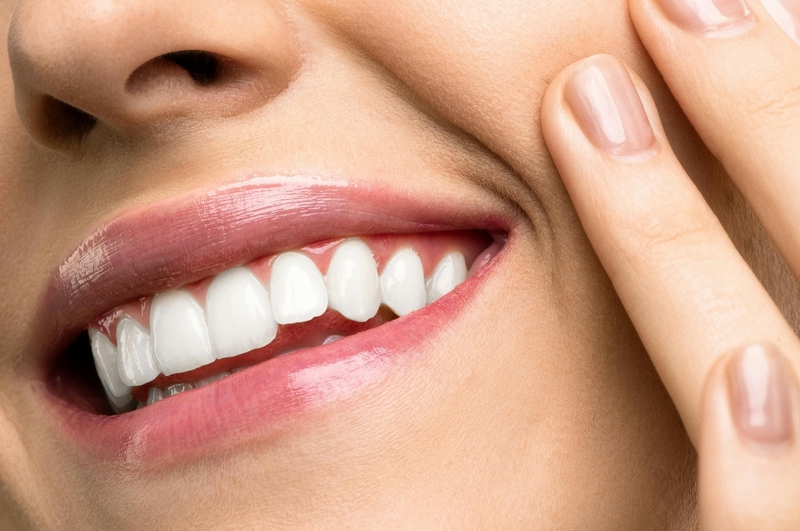Oral Implants that Last a Lifetime and Give Smiles
Oral Implants that Last a Lifetime and Give Smiles
Blog Article
Discover the newest advancements in implant dentistry
The query of whether or not smokers can get dental implants successfully is one which many patients face. Smoking has long been related to opposed results on oral health, including gum disease, tooth decay, and compromised therapeutic. Many individuals who smoke might fear about their ability to bear dental procedures like implants, which rely heavily on correct therapeutic and integration with the bone.
Dental implants are designed to exchange missing teeth, providing a sturdy foundation for artificial teeth. The procedure involves placing a titanium post into the jawbone, serving as a root for the new tooth. For smokers, the healing process may be prolonged due to reduced blood move and oxygen provide, which impacts the body’s ability to heal. Smoking additionally leads to the release of poisons that may negatively impact the encircling tissues.
Research indicates that smokers face greater failure rates with dental implants compared to non-smokers. Several research recommend that the success rates of implants could lower by 10% to 20% in smokers. This is largely because of impaired healing, rising the likelihood of infections and problems. The nicotine in cigarettes narrows blood vessels, lowering oxygen transport and nutrient supply, each very important for healing.
Customized Implant Dentistry Services in Johnstown
In addition to healing issues, smoking can even result in bone loss within the jaw. A healthy jawbone is important for the profitable placement of dental implants. The impact of smoking can result in the degradation of jawbone density over time. For individuals considering implants, sustaining bone health is crucial, and smokers may need additional remedies to enhance bone density before they'll obtain implants.
Before continuing with implants, a dentist might consider a smoker’s overall oral health. This analysis consists of checking for gum disease, tooth decay, and the condition of the bone. If significant points are found, the dentist might suggest that the patient stop smoking for a designated period before and after the surgery to enhance the likelihood of success. In some cases, specific dental procedures might be necessary to enhance the conditions of the oral cavity.
Smoking not solely affects the immediate healing course of but can even affect how long the implants last. Several studies suggest that long-term smokers could face points similar to peri-implantitis, an inflammatory condition affecting the tissues across the implant. This condition can result in bone loss, which could in the end result in implant failure. The cyclical nature of smoking-related issues raises serious questions about long-term outcomes for smokers looking for implants.
Customized Tooth Replacement Using Johnstown Dental Implants
However, quitting smoking can lead to significant enhancements in oral health. Even a brief cessation interval prior to surgery can enhance blood flow and the physique's ability to heal. Dental professionals usually encourage patients to consider quitting as part of the preparation for any dental procedures, including implants. Some research have documented instances where short-term abstinence from smoking positively influenced the success of dental implants.
The support of healthcare suppliers, including dentists and general practitioners, could make a substantial difference in this process. Programs designed to help people quit smoking are readily available and may include counseling, medications, and community support. Patients who successfully quit smoking often experience not solely higher dental outcomes but also total health benefits, enhancing their quality of life.
Patients additionally must be informed about the risks related to smoking earlier than and after the position of dental implants. Post-surgical care is essential for ensuring that the body integrates the implant without issues. Smokers are often cautioned in regards to the importance of sustaining good oral hygiene through the therapeutic course of. Regular follow-ups with the dentist can help in monitoring the healing and permit for early intervention if complications arise.
It is essential to understand that whereas the success charges for smokers may be lower, they aren't entirely precluded from receiving dental implants. Each case ought to be carefully evaluated by a dental professional who can present customized suggestions. Factors such because the extent of smoking, length, and overall health status will help decide essentially the most acceptable course of action for every affected person.
For Longing Smiles, Johnstown's Top Dental Implant Services are Available.
Emphasizing preventative care, each pre- and post-surgery, holds vital importance for smokers considering try here dental implants. Routine dental check-ups, effective periodontal therapy, and strict adherence to oral hygiene might help mitigate a variety of the risks related to smoking. It’s also helpful for smokers to debate their habits candidly with their dental care group to develop a tailor-made technique that addresses particular person challenges.

Dental implants can provide a restorative solution for missing teeth, enhancing both appearance and functionality. For smokers, however, continuing with caution is critical. Engaging in open dialogue with healthcare suppliers about smoking status and potential cessation can result in higher oral health outcomes. The willingness to make lifestyle adjustments can significantly enhance the probability of profitable dental implant placement.
As a last observe, smokers ought to find more info stay proactive regarding their oral health. Making informed choices and prioritizing dental care may pave the best way for successful dental implant treatment. While smoking does introduce challenges, the potential for attaining a good consequence exists with the right support and dedication to healthier habits.
Long-Term Success with Dental Implants: Achieve Long-Term Success
Implementing methods for quitting smoking not only benefits the possibilities of dental implant success but in addition improves general health, ultimately resulting in a greater quality of life (Johnstown's Reputable Dental Implant Solutions).
- Smoking can significantly hinder the healing process after dental implant surgery due to lowered blood circulate and oxygen levels in the gums.
- Smokers have a better risk of implant failure, with studies indicating a noticeable disparity in success rates compared to non-smokers.
- The presence of nicotine and different harmful chemicals in tobacco products can lead to complications such as infections and delayed recovery.
- A thorough consultation with a dental skilled is essential to evaluate particular person risks earlier than proceeding with dental implants for smokers.
- Smoking cessation earlier than and after the implant procedure can significantly enhance the chances of success and total oral health.
- Dental professionals might suggest additional treatments or procedures, such as bone grafting, to boost the viability of implants in smokers.
- Smokers may require more frequent check-ups and maintenance appointments to monitor the condition of their implants over time.
- Many dental clinics offer tailored programs to help smokers in quitting, which may be beneficial for those contemplating implants.
- Adequate oral hygiene practices, combined with smoking cessation, play a important position in minimizing problems after receiving implants.
- Evaluating lifestyle changes, together with dietary modifications, can contribute positively to the long-term success of dental implants for smokers.undefinedCan smokers get dental implants successfully?
Experience Superior Dental Implants in Johnstown
What impression does smoking have on dental implants?
Smoking can considerably hinder the success of dental implants. It restricts blood move, delays therapeutic, and will increase the chance of infection, resulting in the next probability of implant failure - Comprehensive dental implant care for long-lasting results.
How long ought to one give up smoking before getting dental implants?
Dental Implants that are Reliable and Robust for a Wonderful Smile
Ideally, it is recommended to stop smoking a minimum of 2-4 weeks previous to the procedure. This promotes better healing and increases the possibilities of profitable integration of the implant.
Are there particular risks for smokers undergoing dental implant surgery?
Yes, smokers face increased risks such as delayed therapeutic, infection, and potential implant failure. These factors make the procedure more complicated, and careful consideration is required.
With dental implants, restore function and aesthetics.
Can dental implants be successful for infrequent smokers?
While occasional smokers might have a decrease risk in comparability with heavy smokers, they are nonetheless at an elevated risk for complications. Consulting with a dental professional for personalized recommendation is crucial.

What are suggestions for smokers to enhance dental implant success rates?
Experience Superior Dental Implants in Johnstown
Smokers can enhance their probabilities by quitting smoking nicely upfront of the surgery, maintaining good oral hygiene, and following post-surgical care instructions offered by their dentist.

Is there a difference in recovery for smokers versus non-smokers?
Yes, smokers usually expertise longer recovery times and higher complication charges compared to non-smokers due to impaired blood circulation and oxygen delivery to healing tissues.
What ought to a smoker discuss with their dentist before getting implants?
- Implant Dentistry for Long-Term Replacement of Tooths
Comprehensive Dental Implant Care for Long-Term Benefits
Smokers should talk about their smoking habits, any history of issues with previous dental work, and methods for quitting or lowering smoking earlier than the procedure.
How does smoking have an result on long-term implant maintenance?
Modified periodontal implants for a smile that looks natural
Smoking can complicate long-term maintenance of dental implants. Smokers may be more susceptible to gum disease, which may jeopardize the soundness of implants over time.
Can nicotine patches or different aids help smokers through the dental implant process?
Yes, nicotine replacement therapies such as patches may help individuals scale back cravings and stop smoking before review surgery. It's advisable to discuss this with a healthcare skilled to determine the most effective method. Report this page